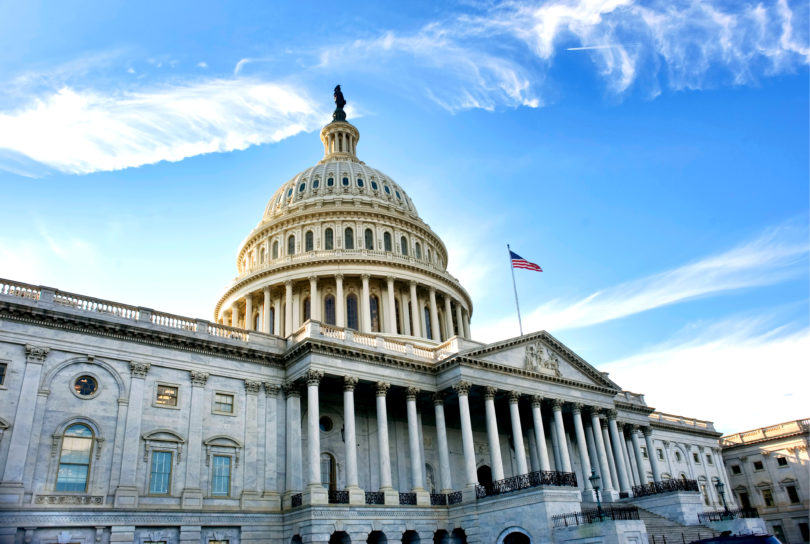For the first time ever, congressional democrats included a panel at their policy retreat that was focused entirely on cannabis reform.
Last Thursday morning was the panel at the House Democrats’ gathering, with cannabis advocates sharing their point of view on why reform is not only a necessity in this day and age, but also how a new system should be implemented. It was titled “From the War on Drugs to Restorative Justice: Ensuring Racial and Social Equity in the Cannabis Movement,” and was quite busy despite an early, 7:45 am start time.
Overall, conversations weren’t centered on whether to end prohibition or not – which seemed to go without saying as an already accepted conclusion – but rather how to shape the legal industry moving forward. Also discussed was the need to repair past harms caused by the ongoing “war on drugs”. There was a great deal of significance put on the racial injustices of prohibition.

Cannabis reform will be a prominent topic at during the 2020 elections
This cannabis-focused event shows that the Democratic party is not only willing to pass comprehensive bills that go beyond just removing cannabis from the Controlled Substances Act, but also to build a fair, responsible, and equitable market for the future. Below is a list of questions addressed by the panel, as per a memo they released.
“What are some of the specific ways that marijuana prohibition and its enforcement has devastated people of color? What are some of the consequences of a marijuana arrest or conviction?
How have these policies impacted communities at large? What type of lasting consequences have we seen come from marijuana prohibition as a policy?
Will legalizing marijuana for adult use improve the situation? What considerations should lawmakers be making as they look to legalizing marijuana for adult use? (i.e.Clearing records, investing in communities, reuniting families)
Have the states who have moved on this issue been intentional about removing the prohibition framework? What are some examples of further steps that can be taken?
Many states have now created industry without being intentional about the structural inequities that persist post legalization such as access to capital, what type of burden should fall on the states to deliver on equity? And what type of challenges are being experienced by entrepreneurs as they seek to grow in this space?”
Furthermore, the memo specifically states that “passing cannabis reform should include restorative justice, implementing criminal justice and drug policy reforms, reinvesting in communities of color, and ensuring the inclusion of entrepreneurs of color in the fast-moving cannabis industry.” Also included in the meeting were various pieces of cannabis legislation documents such as the Marijuana Justice Act sponsored by Representative Barbara Lee (D-CA) and the Strengthening the Tenth Amendment Through Entrusting States (STATES) Act introduced by Representative Earl Blumenauer (D-OR).
“There was a great collegial spirit in the room, where people were really feeling energized by wanting to fight to end prohibition and end it in a way that is comprehensive,” said Queen Adesuyi, policy coordinator at the Drug Policy Alliance and one of the event’s speakers. “It seems like Dems are at the point where they are more fully understanding the breadth of what it means to end marijuana prohibition.”









